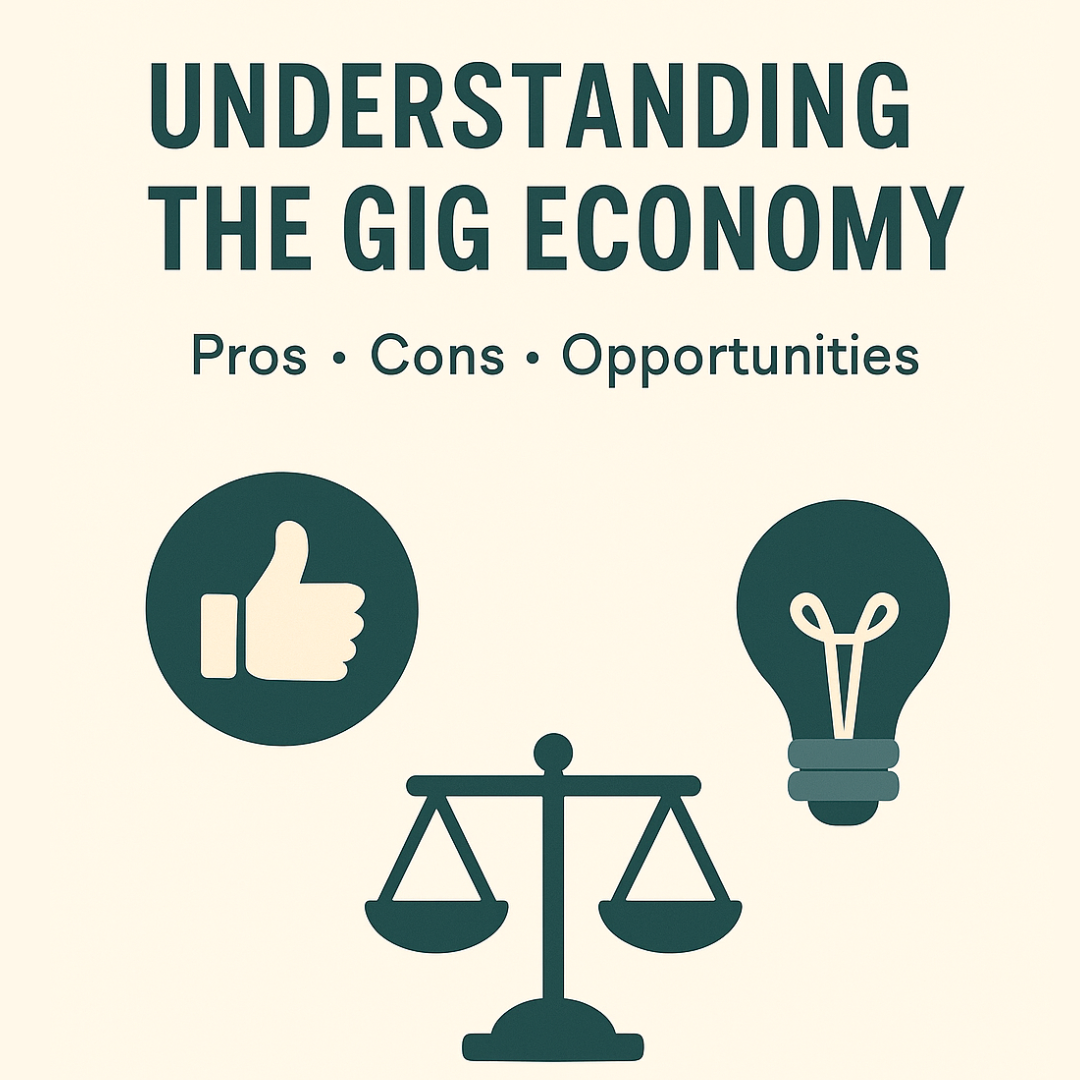Understanding the Gig Economy: Pros, Cons, and Opportunities
What is the gig economy
The gig economy refers to a labour market where short-term, flexible, and freelance jobs are common, as opposed to permanent, full-time employment. Work in the gig economy often involves temporary assignments and projects that are typically found and managed through apps or digital platforms.
Examples
There are a few well-known examples of gig economy platforms that most people have heard of, even if they’ve never taken part in gig work themselves. Uber and Deliveroo are among the most recognisable, offering ridesharing and food delivery services. Others, while less widely known, are still popular—such as TaskRabbit, where workers can be hired for odd jobs, furniture assembly, deliveries, and similar tasks. Freelance marketplaces like Upwork and PeoplePerHour connect skilled professionals with clients worldwide. Whether you’re a designer, writer, marketer, or software developer, you can find projects that match your expertise and work on your own schedule.
Pros
There are many advantages to gig work compared with more traditional forms of employment. The flexibility and autonomy it provides is one of the most attractive benefits, particularly for individuals with other commitments, such as childcare or education. Gig work also offers global opportunities, as remote work and digital platforms enable individuals to collaborate with companies or clients from around the world. Many workers use gig jobs as a side income—supplementing a main salary, paying off debt, or funding personal goals—without committing to a second full-time role.
Cons
While there are clear benefits to gig work, there are also significant drawbacks to consider. The lack of job security and employment benefits can be a deterrent, as freelancers typically do not receive retirement plans, paid sick leave, or holiday pay. Gig workers are also responsible for managing their own taxes, pensions, and insurance, which can be complex and time-consuming. Another challenge is income instability—work may come in waves, with busy periods followed by dry spells, making it harder to budget for consistent expenses such as rent and bills. Additionally, independent contractors usually have fewer legal protections than employees. They may face difficulties resolving disputes over pay, project scope, or working conditions, and they are often excluded from labour laws covering minimum wage, overtime, or workplace safety.
Opportunities
For individuals who are good at budgeting and want more freedom than a traditional 9–5 job can offer, the gig economy presents many opportunities. The rise of freelancing and gig work has enabled people to shape their careers on their own terms. From working remotely anywhere in the world to diversifying income streams through multiple projects, gig workers have the chance to expand their skills, build professional networks, and enter industries that may have previously been out of reach. This flexibility allows people to pursue passion projects alongside paid work, explore new career paths, or gain valuable experience across different fields without being tied to a single employer. For many, freelancing is not just about earning money—it’s also about creating opportunities for growth, independence, and long-term career development.

